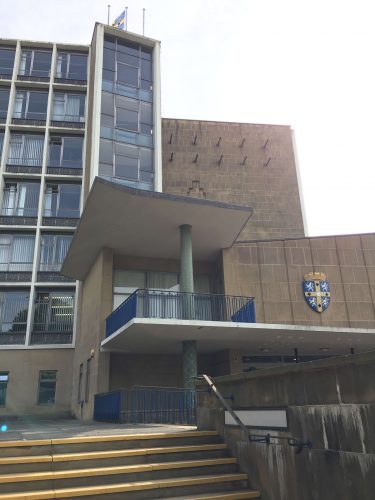On paper, my placement in Durham, NC sounds very similar to where I am working here in Durham, UK. I spent my first six weeks working at the Office of Economic and Workforce Development. In England, I am working in local government too, this time in the Spatial Policy Department at Durham County Council. And in a way, they are similar—in both of my placements, I’ve spent much of my time doing research on policies that other cities have already implemented, then using that insight to put together a list of recommendations for each Durham. I’ve also come to learn that local governments have their own “language” of sorts, a combination of technical jargon and complex acronyms. It’s been interesting getting used to the language of both Durhams.

These first few weeks in the UK have also been peppered with interesting cultural differences. My research here centers around empty home policy and how the County can bring these homes back into use as affordable housing. My supervisor, Steph, gave me some context to this problem, and in doing so, frequently used the word “regeneration”. I had never heard of this word in the context of economic development before, but I understood from context that here in the UK, it’s used in a similar way that Americans would use “renewal” or “redevelopment”. I pointed this out, and we had an interesting conversation about the respective connotations of both of these words. “Regeneration” has the implication of taking what exists and creating something better out of it, but doesn’t the remaking of something erase what was once there before? County Durham clings strongly to its mining heritage—as new industries emerge in this part of England, it will be interesting to see how the transformation of Durham’s economy changes how people perceive the region’s working-class past.

During my time in Durham, many people have also asked me about life in the U.S., particularly about healthcare, interestingly enough. After picking me up to take me to County Hall, Cam, one of our program coordinators in England, and I began talking about healthcare coverage and access in the U.S. He told me about one of his visits to the U.S. with his rugby team. During a game, someone on the team suffered a bloody head injury, and Cam took him to a hospital. However, because he didn’t have American insurance, it took over three hours for him to be seen and treated by a doctor. Multiple people have also expressed disbelief at how expensive and how inequitably distributed medical treatment is in the U.S. I’ve found that as Americans, we tend to be pretty self-congratulatory as a nation, and often for good reason—we have some of the best universities in the world, and people travel to the U.S. from all over the world to receive cutting-edge medical treatment. At the same time, it does us good to remember all of our shortcomings—neither our universities nor our hospitals are accessible to all. It is refreshing to be able to have these conversations and to look back on the U.S. with a critical eye.
I had never been to Europe before this summer, and I naively believed that England wouldn’t be all that different from the U.S. While it hasn’t been difficult to adjust culturally, I have had some fascinating conversations on the very real differences between our two countries.
